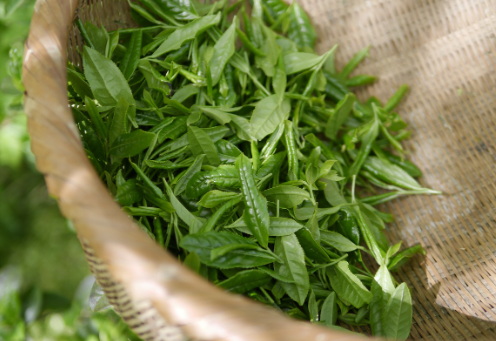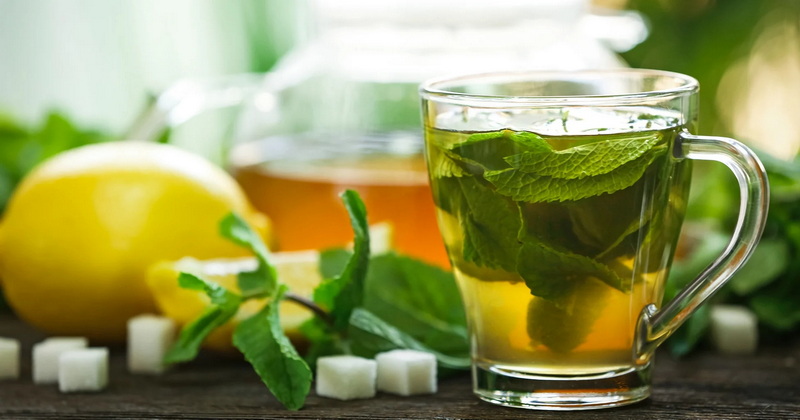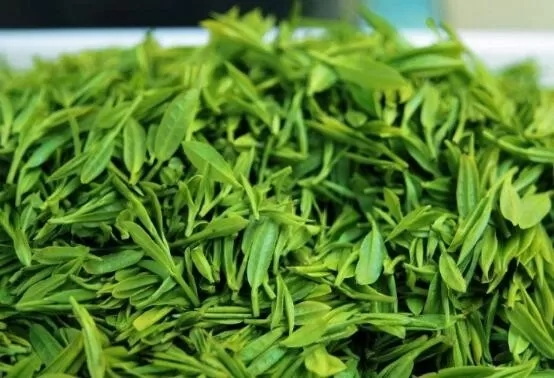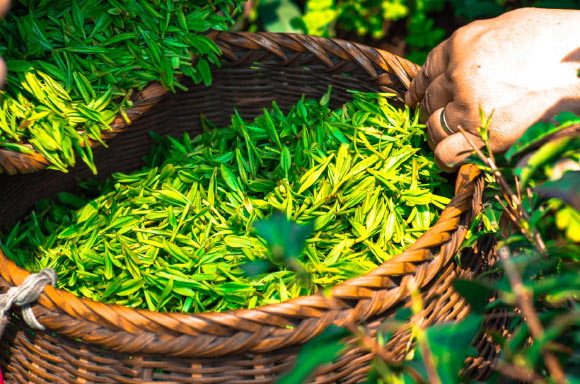Content Menu
● What is Green Tea Extract?
● GRAS Status: An Overview
● GRAS Notification for Oil-Soluble Green Tea Extract
● FDA's Stance on Green Tea Extract
● Health Benefits of Green Tea Extract
● Safety Concerns and Potential Risks
● Regulatory Considerations in Different Countries
>> Diving Deeper: Understanding the Science and Nuances of Green Tea Extract
● Composition of Green Tea Extract: More Than Just EGCG
● Mechanisms of Action: How Green Tea Extract Works in the Body
● Ongoing Research and Emerging Evidence
● Challenges in Assessing the Safety of Green Tea Extract
● Tips for Safe Consumption of Green Tea Extract
● Conclusion
● FAQ About Green Tea Extract
>> 1. What is the recommended dosage of green tea extract?
>> 2. Can green tea extract cause liver damage?
>> 3. Is green tea extract safe for pregnant or breastfeeding women?
>> 4. Does green tea extract interact with medications?
>> 5. How can I ensure the quality and safety of green tea extract supplements?
● Citations:
Green tea extract (GTE) has garnered significant attention for its potential health benefits, leading to its incorporation into various food products and dietary supplements. However, the question of whether green tea extract is Generally Recognized as Safe (GRAS) is complex. This article explores the GRAS status of green tea extract, its uses, potential benefits, safety concerns, and regulatory considerations.

What is Green Tea Extract?
Green tea extract is a concentrated form of green tea, derived from the Camellia sinensis plant. It contains a high concentration of antioxidants, particularly polyphenols known as catechins, with epigallocatechin gallate (EGCG) being the most abundant and well-studied. GTE is available in various forms, including capsules, powders, and liquids, and is used in dietary supplements, foods, and beverages.
GRAS Status: An Overview
The GRAS designation is a regulatory pathway established by the U.S. Food and Drug Administration (FDA). It allows food manufacturers to self-determine the safety of a substance for its intended use, without requiring premarket approval, if there is a consensus among qualified experts that the substance is safe under the conditions of its intended use.
GRAS Notification for Oil-Soluble Green Tea Extract
In 2018, Kemin Food Technologies submitted a GRAS notice to the FDA for Oil-Soluble Green Tea Extract (OS-GTE), also known as Green Tea Catechin Palmitate. Kemin concluded that OS-GTE is GRAS for use as an antioxidant in various food products. The FDA did not object to this determination, effectively allowing Kemin to market OS-GTE for its intended purpose without premarket approval.
FDA's Stance on Green Tea Extract
Despite the GRAS notification for OS-GTE, the FDA's stance on green tea extract is not without scrutiny. The agency has, in the past, raised concerns about the safety of high concentrations of EGCG, particularly regarding potential harm to organs and increased cancer risk. While the FDA relies on companies' own studies to determine safety, it has been criticized for not conducting its own thorough reviews of safety data.
Health Benefits of Green Tea Extract
Green tea extract is often touted for its numerous health benefits, which are primarily attributed to its high antioxidant content. These benefits include:
-Antioxidant Activity: Catechins in GTE help reduce oxidative stress by protecting against cell damage caused by free radicals.
-Heart Health: GTE may help reduce blood pressure and improve blood fat levels, promoting heart health.
-Brain Health: Antioxidants in GTE protect brain cells from oxidative stress, potentially reducing the risk of mental decline and brain diseases.
-Weight Loss: GTE may promote weight loss due to its catechin and caffeine content.
-Cancer Prevention: Some studies suggest that green tea polyphenols exhibit antitumor properties.
Safety Concerns and Potential Risks
While green tea extract offers potential health benefits, it is not without potential risks, especially when consumed in high doses. Some safety concerns include:
-Toxicity: Excessive intake of GTE can be toxic and may cause liver damage.
-Drug Interactions: GTE may interact with certain medications, such as blood thinners and some heart medications.
-Side Effects: Common side effects of GTE include nausea, stomach upset, and headaches.
-Contamination: Some GTE supplements may be contaminated with heavy metals or other toxins.

Regulatory Considerations in Different Countries
The regulation of green tea extract varies across different countries. In the United States, the FDA has a voluntary notification system for GRAS ingredients, which puts the onus on companies to determine safety. Health Canada permits the use of green tea extract as a supplemental ingredient in supplemented foods under certain conditions.
Diving Deeper: Understanding the Science and Nuances of Green Tea Extract
To fully understand the GRAS status and implications of using green tea extract, a deeper exploration into its composition, mechanisms of action, and ongoing research is warranted. This section expands on the existing knowledge, addressing the complexities surrounding GTE.
Composition of Green Tea Extract: More Than Just EGCG
While EGCG is the star player in the green tea extract composition, it's important to acknowledge the presence and roles of other components. These include:
-Other Catechins: Epicatechin (EC), Epigallocatechin (EGC), and Catechin (C) are also present, contributing to the overall antioxidant effect.
-Caffeine: Green tea naturally contains caffeine, which can contribute to its stimulant effects. The amount varies depending on the extract's source and processing.
-Amino Acids: L-theanine is an amino acid found in green tea, known for its calming effects and potential to synergize with caffeine to improve focus and cognitive function.
-Minerals and Vitamins: Green tea contains trace amounts of minerals like potassium and fluoride, as well as vitamins like vitamin C.
The interplay between these components contributes to the holistic effects of green tea extract, and isolating specific benefits solely to EGCG might be an oversimplification.
Mechanisms of Action: How Green Tea Extract Works in the Body
The health benefits of green tea extract are attributed to several mechanisms of action:
-Antioxidant Activity: Catechins scavenge free radicals, protecting cells from oxidative damage and reducing inflammation.
-Anti-inflammatory Effects: GTE can modulate inflammatory pathways, potentially alleviating symptoms of inflammatory conditions.
-Metabolic Effects: GTE may influence glucose metabolism, lipid metabolism, and energy expenditure, contributing to weight management.
-Cardiovascular Effects: GTE can improve blood vessel function, reduce blood pressure, and lower cholesterol levels.
-Neuroprotective Effects: GTE may protect brain cells from damage, enhance cognitive function, and reduce the risk of neurodegenerative diseases.

Ongoing Research and Emerging Evidence
Research on green tea extract is ongoing, with emerging evidence suggesting potential benefits in various areas:
-Diabetes Management: Studies suggest that GTE may improve insulin sensitivity and blood sugar control in people with type 2 diabetes.
-Skin Health: GTE has shown promise in protecting the skin from UV damage, reducing inflammation, and improving skin elasticity.
-Liver Protection: Some studies suggest that GTE may protect the liver from damage caused by toxins and alcohol.
-Exercise Performance: GTE may enhance exercise performance by increasing fat oxidation and reducing fatigue.
Challenges in Assessing the Safety of Green Tea Extract
Assessing the safety of green tea extract is challenging due to several factors:
-Variability in Composition: The composition of GTE can vary depending on the source of the tea leaves, the extraction method, and the manufacturing process.
-Bioavailability: The bioavailability of catechins, particularly EGCG, is relatively low, meaning that only a small percentage of the ingested dose is absorbed into the bloodstream.
-Individual Variability: Individuals respond differently to GTE based on factors such as genetics, age, health status, and medication use.
-Lack of Standardized Dosages: There is no standardized dosage of GTE, making it difficult to determine safe and effective doses.
Tips for Safe Consumption of Green Tea Extract
If you choose to use green tea extract, consider these tips:
-Start with a low dose: Begin with a low dose and gradually increase it as tolerated.
-Choose reputable brands: Select products from reputable manufacturers that use high-quality ingredients and undergo third-party testing.
-Consult a healthcare professional: Talk to your doctor before using GTE, especially if you have any underlying health conditions or are taking medications.
-Monitor for side effects: Pay attention to any side effects and discontinue use if they occur.
-Avoid high doses: Do not exceed the recommended dosage, as high doses may increase the risk of adverse effects.
Conclusion
Green tea extract remains a complex and evolving area of research. While certain forms have achieved GRAS status for specific applications, a nuanced understanding of its composition, mechanisms, and potential risks is crucial. Responsible use, guided by scientific evidence and healthcare professional advice, remains the best approach.

FAQ About Green Tea Extract
1. What is the recommended dosage of green tea extract?
The appropriate dosage of green tea extract varies depending on individual factors such as age, health condition, and the specific product being used. It is best to follow the manufacturer's instructions or consult a healthcare professional for personalized advice.
2. Can green tea extract cause liver damage?
High doses of green tea extract have been linked to liver damage in some individuals. It is essential to adhere to recommended dosages and monitor for any signs of liver problems, such as abdominal pain, jaundice, or dark urine.
3. Is green tea extract safe for pregnant or breastfeeding women?
Pregnant and breastfeeding women should exercise caution when considering green tea extract supplementation. While moderate consumption of green tea is generally considered safe, the concentrated form in extracts may pose risks. Consulting a healthcare provider is recommended.
4. Does green tea extract interact with medications?
Green tea extract can interact with certain medications, including blood thinners, some heart medications, and drugs metabolized by the liver. It is essential to inform your healthcare provider about all medications and supplements you are taking to avoid potential interactions.
5. How can I ensure the quality and safety of green tea extract supplements?
To ensure the quality and safety of green tea extract supplements, choose products from reputable manufacturers that undergo third-party testing for purity and potency. Look for certifications from organizations.
Citations:
[1] https://www.fda.gov/media/126906/download
[2] https://pmc.ncbi.nlm.nih.gov/articles/PMC6412948/
[3] https://patents.google.com/patent/TWI607708B/zh
[4] https://www.ewg.org/news-insights/news/2021/11/fda-not-food-companies-should-decide-whether-green-tea-extract-safe
[5] https://www.healthline.com/nutrition/10-benefits-of-green-tea-extract
[6] https://ojs.openagrar.de/index.php/JABFQ/article/download/8807/9140
[7] https://www.canada.ca/en/health-canada/services/food-nutrition/public-involvement-partnerships/notice-modification-list-permitted-supplemental-ingredients-permit-use-green-tea-extract-supplemental-ingredient-foods/document.html
[8] https://www.webmd.com/vitamins/ai/ingredientmono-960/green-tea
[9] https://www.mdpi.com/2297-8739/10/2/121































